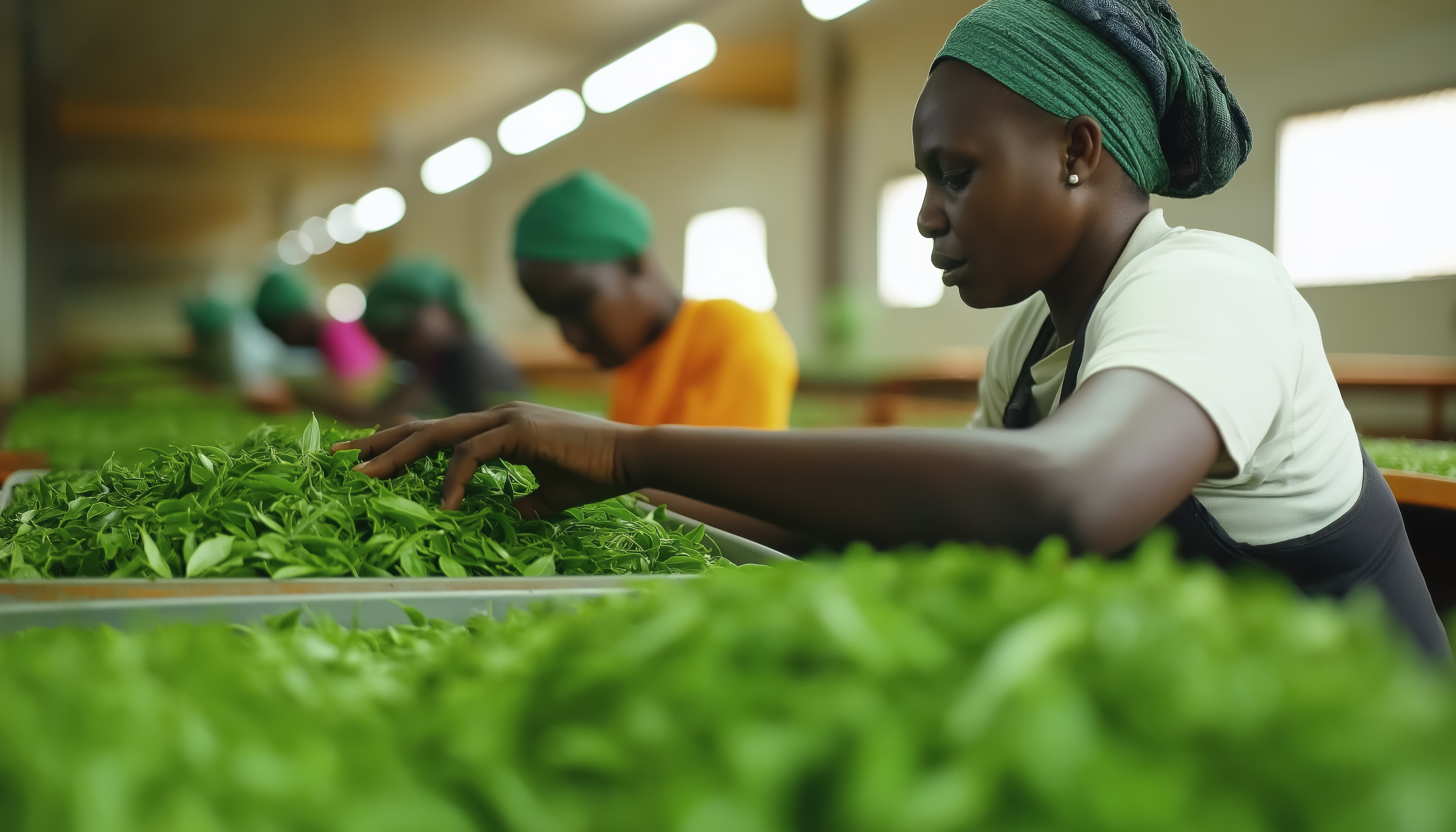
The Role of Energy Efficiency
Energy efficiency is a vital strategic lever, seamlessly aligning the journey to net-zero with enhanced industrial competitiveness. By addressing the pressing challenge of climate change while driving sustainable economic development, energy efficiency strengthens economic long-term resilience and paves the way for a more sustainable future.
WHY ENERGY EFFICIENCY MATTERS
Energy efficiency represents a real opportunity – arguably the most cost effective one – to expand energy access for all and set society on the right path toward achieving the decarbonization goals of the Paris Agreement. In Africa, where more than 600 million remain without access to electricity, energy efficiency holds a major transformative potential to bridge the energy access gap, improve livelihoods, promote sustainability and drive innovation and performance across industries.

What is Energy Efficiency and How it Can Be Achieved?
Energy efficiency refers to a set of practices aimed at consuming less energy to achieve the same task or outcome. The International Organization for Standardization (ISO) defines energy efficiency as "the ratio or other quantitative relationship between an output of performance, service, goods, or energy, and an input of energy." Energy efficiency encompasses technologies, processes, and behaviours that, when adopted synergistically, can generate positive ripple effects on industries, communities, and entire nations.
The adoption of energy efficiency solutions offers a unique advantage: it does not rely on the development of large-scale infrastructure, making it easier to adopt and allowing its benefits to be realized more quickly than many other renewable energy solutions. However, its successful implementation requires careful planning and a collective cultural shift. This involves modernizing equipment with innovative technological components, enacting supportive policies, training energy experts, and educating consumers on the long-term value of investing in energy-efficient technologies over less efficient, short-term alternatives.
The Impact of Energy Efficiency on Livelihoods
An increased adoption of energy-efficient products, services, and industrial equipment can significantly enhance access to sustainable energy and improve livelihoods through multiple pathways:
- Improved Energy Access and Security: By increasing electricity capacity in constrained networks, EE solutions enhance energy security and reliability while reducing grid power demand. This enables excess electricity to be redirected to underserved areas, expanding access. Additionally, lower reliance on imported fuels improves trade balances, allowing funds to be reinvested in economic development and grid expansion.
- Affordability for Off-Grid Users: Energy-efficient appliances lower costs for off-grid users, making sustainable energy solutions more affordable for a broader population.
- Social Benefits: Energy-efficient products contribute to improved health outcomes by reducing indoor and outdoor air pollution, particularly through the increased use of electric stoves and decreased reliance on fossil fuels. Households benefit from cost savings, enhanced quality of life, and reduced maintenance needs associated with sustainable energy services. Access to energy-efficient productive-use appliances also fosters income-generating activities, thereby boosting livelihoods.
- Food Security: Energy-efficient technologies support food security by reducing post-harvest losses through improved on- and off-grid food storage and processing facilities.
- Environmental Benefits: The adoption of energy-efficient products and equipment reduces carbon emissions and minimizes harmful waste from inefficient appliances, contributing to a cleaner environment.
Collectively, these outcomes underscore the transformative potential of energy efficiency in advancing sustainable energy access while fostering economic, social, and environmental progress.
Energy Efficiency at UNIDO and EELA
Addressing these multifaceted challenges through an integrated approach tailored to stakeholders' needs and specific contexts is where UNIDO excels, and this is reflected in its implementation of the Energy Efficiency for Sustainable Livelihoods in Africa (EELA) program. EELA exemplifies UNIDO’s expertise in advancing energy efficiency and its transformative impact on industries and communities across Africa.
The EELA program, like other UNIDO initiatives, adopts a synergistic framework that includes:
- Strengthening Regulatory and Institutional Frameworks: The EELA program develops policies and data systems to support better energy data collection and monitoring, enabling accurate benchmarking and fostering an enabling regulatory environment across African regions.
- Building Market Awareness and Capacity: EELA raises awareness about the benefits of energy-efficient technologies among local stakeholders. It provides training and capacity-building initiatives to equip market actors with the skills to design, implement, and sustain energy-efficient projects, ensuring knowledge transfer is institutionalized for long-term impact.
- Facilitating Access to Finance: Through EELA, UNIDO develops de-risking instruments and establishes financing mechanisms to lower barriers to investment in energy efficiency. These tools support industries and households alike, fostering access to high-efficiency equipment and improving livelihoods.
By integrating these approaches, the EELA program directly supports sustainable industrial growth while addressing pressing regional challenges. Its contributions to productivity, energy access, and environmental sustainability align with UNIDO’s mission to drive holistic and impactful change in industrial and energy systems

The Energy Challenge in Africa
A growing population and the rising energy demands of an expanding industrial sector have created a significant gap between energy supply and demand in Africa. Half of Africa, or about 600 million people, still don't have access to reliable electricity, not least sustainable energy. By adopting energy efficiency, the region can leapfrog to sustainable energy systems without locking into carbon-intensive pathways.
Despite progress in promoting energy efficiency in the EAC, ECOWAS, and SADC regions, significant challenges remain. Key barriers include the import of low-quality or second-hand products, weak adoption and enforcement of regional Minimum Energy Performance Standards (MEPS), inadequate public awareness, and limited private-sector engagement. Additionally, weak institutional capacity, poor border controls, and low recycling rates for e-waste exacerbate the problem.
Overcoming these hurdles requires integrated policies, strengthened regulatory frameworks, effective awareness campaigns, and robust financing mechanisms. Expanding MEPS to cover more products, enhancing regional coordination, and fostering private-sector involvement are vital steps to driving market transformation and advancing energy efficiency across Africa.
Getting the Transition Done
Last but not least, energy efficiency is our greatest ally in combating climate change and ensuring that our journey to net-zero leads to full decarbonization by 2050. Energy efficiency plays a pivotal role in achieving these goals by reducing energy consumption and directly lowering greenhouse gas emissions from power generation and industrial processes.
As the International Energy Agency has assessed, over 40% of the efforts needed to align with the Paris Agreement targets can be achieved through energy efficiency interventions. The potential is immense: efficient technologies and practices can significantly reduce emissions across sectors such as transportation, manufacturing, and residential energy use.
In sub-Saharan Africa, the EELA Program is unlocking the transformative power of energy efficiency, paving the way for a future that is economically vibrant, socially inclusive, and environmentally resilient. By embracing energy efficiency, we are investing in a solution that drives immediate progress while preserving resources for generations to come.
